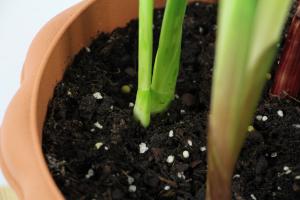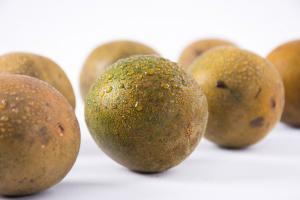Introduction
Having plants in our homes can be very beneficial. Not only do they add beauty to our living spaces, but they can also help to purify the air we breathe. But it's not just plants that might be growing in our pots. Sometimes, mushrooms can also pop up, which can be a cause for concern for some people. In this article, we will explore what kind of mushrooms can grow in potted plants and what you can do about them.
Types of Mushrooms
There are several different types of mushrooms that can grow in potted plants. One common type is the Psilocybin mushroom, which can cause psychedelic effects if ingested. This mushroom typically grows in warm and humid environments, so if you live in a tropical climate, you may be at a higher risk of finding it in your potted plants.
Another type of mushroom that can grow in potted plants is the Deadly Galerina. As the name suggests, this mushroom is extremely poisonous and can be fatal if ingested. It often grows on dead wood or decaying plant matter, which makes potted plants a prime location for it to appear.
Other types of mushrooms that can appear in potted plants include the Oyster mushroom and the Button mushroom. These mushrooms are not toxic, but they can still be a nuisance and may affect the growth of your plants.
Causes of Mushroom Growth in Potted Plants
There are several reasons why mushrooms might grow in your potted plants. One common cause is overwatering. Mushroom spores thrive in moist environments, so if you are watering your plants too much, you may inadvertently create an environment that is ideal for mushroom growth.
Another cause is the type of soil you are using. If you are using soil that contains organic matter, such as peat moss or compost, it's more likely that mushrooms will grow in your pots. This is because the organic matter provides nutrients for the mushroom spores to grow.
How to Get Rid of Mushrooms in Potted Plants
If you have mushrooms growing in your potted plants, there are several things you can do to get rid of them. The first step is to remove the mushrooms themselves. You can do this by gently pulling them out of the soil with your hands or using a small trowel.
Next, you should reduce the amount of water you are giving your plants. This will help to create an environment that is less hospitable to mushroom growth. Additionally, you may want to consider changing the type of soil you are using. Using a soil that does not contain organic matter will make it less likely that mushrooms will grow in your plant pots.
Conclusion
Mushrooms in potted plants can be a cause for concern, especially if they are toxic. By understanding what types of mushrooms can grow in your plants and what causes them to appear, you can take steps to prevent their growth and keep your plants healthy.

 how many times do yo...
how many times do yo... how many planted tre...
how many planted tre... how many pine trees ...
how many pine trees ... how many pecan trees...
how many pecan trees... how many plants comp...
how many plants comp... how many plants can ...
how many plants can ... how many plants and ...
how many plants and ... how many pepper plan...
how many pepper plan...































